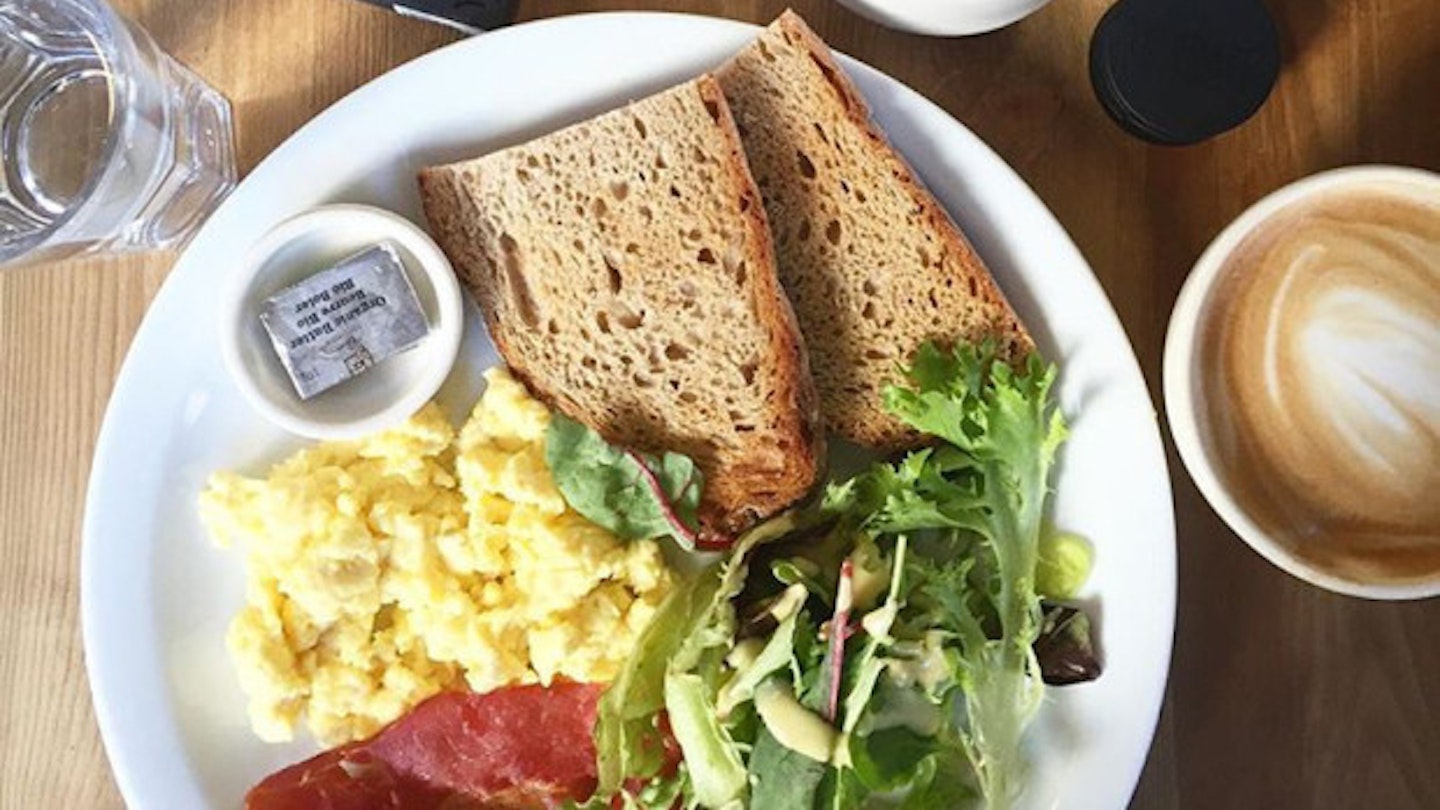You've done it, you've taken the first fitness step whether it's signing up to a gym, starting an exercise class or YouTube fitness videos. Good job.
But now there's some extra things to think about like what to eat before and after a workout to make sure you're actually getting the most out of it. This is exactly why we spoke to Matt Dawson, a nutrition and supplement advisor at Cardiff Sports Nutrition for his top tips on pre and post workout food.
Hey Matt, so what should someone eat before a workout?
‘Firstly, I would say that it depends on your goals. So it differs if it’s someone who is training for performance rather than aesthetics. I’d say that there are two choices for people who are looking to get lean and strong to optimise their performance. The first is slow to moderate digesting carbohydrates like rice, oatmeal, whole wheat pasta and sweet potato. These foods have a low GI so they give you a sustained release of energy throughout your workout.'
So people shouldn’t be scared of carbs?
‘No it’s amazing that when you do eat them, you train for longer and harder which in the end is better. If you have fast-digesting carbs like white bread and sugar you get a sudden spike in energy which would be amazing for the first ten minutes then you’d suddenly get a crash midway through your workout. So it’s fine if you are planning on eating sugar throughout your workout, but not great if you’re having it as a pre-workout meal.’
How much time should you leave after eating before you work out?
‘I’d leave about one to two hours to allow your body time to digest it.’

What about fasted exercise (exercise on an empty stomach)?
‘I like to train fasted, especially in the morning. The difference with fasted exercise, which is especially beneficial for women, is that you’ve got no food source in your body for it to use as energy, so it’s more likely that your body is going to take fat stores to use as energy throughout the workout.
‘I like to have a meal before I go to bed, like porridge around 9.30pm, to use that as my pre-workout. Because I’ve slept on it, when I work out the next morning I am in a relatively fasted state.’
And what should you eat afterwards?
‘100% protein to help train muscles and encourage protein synthesis. It’s going to help massively with the replenishing and recovery of muscles meaning you’ll be able to train better and harder throughout the week. Protein is good in terms of weight loss goals too because protein is a dense nutrient so it will help with you feel fuller for longer and you won’t want to snack on rubbish. It’s also good with helping to increase your metabolism.’
What kind of thing would you suggest to eat in order to get enough protein?
‘If people have protein shakes available, then I would suggest 20-25g of a good whey protein, that’s just protein with no added carbs or fat. Our most popular one in terms of quality and price is Reflex Instant Whey.
If you’re looking for optimal recovery, I would say that if they were looking to eat carbs then this would be the best point in the day to do so. 20-40g of carbs with a meal would be sufficient for post-workout.'
So would you say either carbs or protein?
‘If people were to choose one, I would definitely say protein. It has been proven that protein and carbs together are better than protein alone, however, for recovery especially for women, protein is more important in terms of recovery if they’re not looking to get bigger. As well as shakes, you can get your protein through lean meat such as chicken or turkey, or egg whites.’

What if people are scared of protein shakes?
‘Protein shakes are amazing. Women need protein in their diet as much as men do and they taste great, but shakes don’t have to be drunk, they can be used as a food source. You can mix a scoop into some low fat yoghurt to make a really nice desert and I put a scoop in my porridge after I come back from the gym which is really nice and a lot of girls who I help out will put protein in smoothies.’
When’s the best time to eat after a workout?
‘In an ideal world it’s better to eat sooner but there isn’t really a time. When I’m in a rush, I’ll have a protein shake as soon as I’ve finished and then try and get a good meal about two hours later. But it’s not a necessity to eat immediately, because as long as you’re getting enough good qualities throughout the day you’re going to get your recovery through that.
'After you train you open up the muscle cells in your body which increases lactivity. When you do eat carbs your body is going to soak those up into your muscle cells rather than leave them in your body to eventually be stored as fat. So if you’re eating carbs after a workout, the likelihood is that those carbs will go towards replenishing muscles rather than being stored as fat.’
How much should you change what you’re eating depending on your workout?
‘If you’re going for a run, you’re not training with weights so there is no real necessity for protein and I wouldn’t say a meal is necessary. When you run all you are doing is burning calories. A pre-workout meal is only needed when you are going to the gym to do either weights or a high intensity workout where you need an energy source.’
Thanks, Matt!
Like this? You might also be interested in:
Follow Chemmie on Twitter @chemsquier
This article originally appeared on The Debrief.
